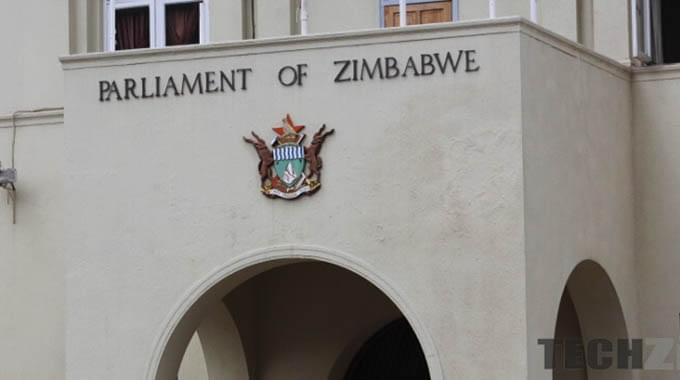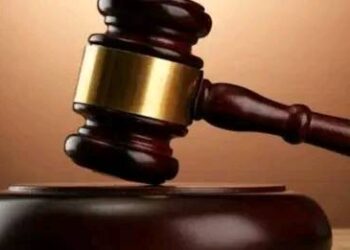On Tuesday 4th July Parliament sent the following three Bills to the President’s Office for assent and signature by the President:
1. The Criminal Law (Codification) Amendment Bill [“Patriot Bill”]
Veritas analysed this Bill in Bill Watch 1/2023 of the 11th January 2023 [link] and concluded it was inimical to the rule of law and will have a chilling effect on freedom of speech. It does not bode well for democracy.
2. The Electoral Amendment Bill
This Bill will not apply to the general election in August, because section 157(5) of the Constitution states that after an election has been called, no amendment to the law has effect for the purposes of the election.
In any event the Bill, or parts of it, may be invalid because the Zimbabwe Electoral Commission may not have been consulted about it as required by section 157(4) of the Constitution. ZEC was almost certainly not consulted about the amendments made to the Bill during its committee stage in the National Assembly.
3. The Labour Amendment Bill
We commented on this Bill in Bill Watch 36/2022 of the 10th August 2022 [link].
After the President has signed these Bills they will be published in the Gazette as Acts of Parliament, and publication could be very soon – perhaps as early as tomorrow.
Private Voluntary Organisations [PVO] Amendment Bill
This Bill has been passed by Parliament and is still with the Attorney-General’s Office for checking.
Other Bills Being Prepared by Parliament for Signature by the President
Prisons and Correctional Service Bill
This is being printed as an Act.
Electricity Amendment Bill
This too is being printed as an Act.
Child Justice Bill
Proofs for the Act are being checked by Attorney-General
Comment: one of the first tasks of the next Parliament will be to amend this piece of legislation to harmonise it with the Children’s Act [see Bill Watch 22/2022 – link]
Children’s Amendment Bill
Again, proofs for the Act are being checked by the Attorney-General.
Police Amendment Bill
Proofs for the Act are being checked by the Attorney-General
Comment: We analysed this Bill in Bill Watch 55/2021 [link]. It will have no effect on the powers of police officers during the election period.
Institute of Chartered Loss Control and Private Security Management Bill
Here too, proofs for the Act are being checked by the Attorney-General.
Acts of 2023 Already Published
National Security Council Act [Chapter 11:22] (No. 1 of 2023)
This Act was published on the 17th March.
Judicial Laws Amendment Act, 2023 (No. 5 of 2023)
This Act was published on the 16th June. It allows court cases to be held virtually, i.e. by electronic means that allow judges and parties to see and hear each other even though they are not physically present in the same place. However, as we noted in Bill Watch 34/2022 [link] there is no provision for the public and the press to be present or to tap into the proceedings, so “virtual” proceedings will not be public proceedings as required by the Constitution. This will be problematic for the current election if Electoral Court cases are held virtually.
Other Matters Concerning Legislation before Parliament Adjourned
The Mines and Minerals Bill
The Parliamentary Legal Committee delivered an adverse report on this Bill on the 10th May. The Minister of Mines and Mining Development delivered a lengthy and detailed reply to it, conceding some points but disputing others. Then MPs made contributions to the debate, including Hon Biti who fiercely attacked the underlying philosophy of the Bill which he called a “horrible piece of legislation” rooted in the colonial past that should be rejected by all Zimbabweans, patriots and nationalists. He urged the Minister to get guidance from model laws on responsible mining drawn up by the African Union, the Extractive Industries Transparency Initiative and SADC.
Debate was then adjourned and did not resume before Parliament’s final adjournment at the end of the week.
Statutory Instrument 144: increase in nomination fees
This SI was challenged in the Constitutional Court. On the 9th June the Court declared that Parliament, through its Parliamentary Legal Committee [PLC], had failed to carry out its constitutional duty to examine the SI, and ordered Parliament to do so by the 16th June. See Election Watch 15/2023 [link].
Just before the House adjourned on the 13th June [and a mere eight days before nomination day] came the Acting Speaker’s announcement that the PLC had examined the SI and reported that it was constitutional. MP’s had previously asked the Acting Speaker for an opportunity debate the report, but after the non-adverse report was announced they were not given the opportunity of debate.
Why has Parliament Adjourned until 22nd August?
This choice of Tuesday 22nd August as the day to which to adjourn is curious. Not only is it the very day before polling day in the forthcoming general election, it is also the last day in the life of this Parliament – because section 143 of the Constitution states that:
“… Parliament stands dissolved at midnight on the day before the first polling day in the next general election …”.
Surely, no one expects both Houses of Parliament to meet at their usual times on the afternoon of Tuesday 22nd August – the eve of elections? At best any meetings are likely to be token or virtual gatherings.
Comment: This matter was better managed when the previous Parliament came to an end in 2018. Then, at the end of their last sittings, both Houses of Parliament adjourned to the day after polling day in the 2018 general election. That was taken as an announcement that they would not meet again before the general election – without in any way detracting from the President’s power under section 146(a) to recall Parliament to duty.
Veritas makes every effort to ensure reliable information, but cannot take legal responsibility for the information supplied.
Source ZimSituation












